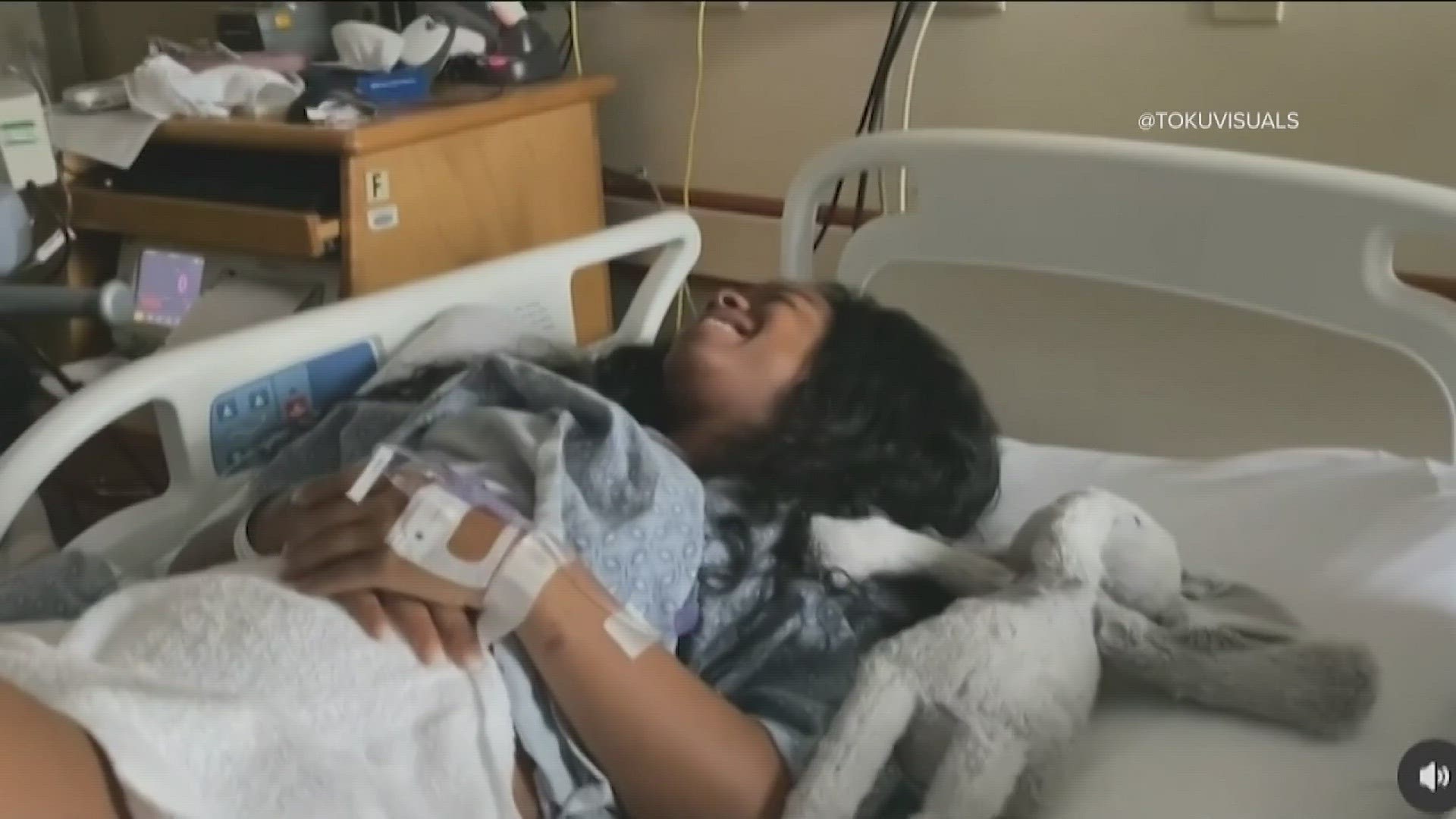ATLANTA — More families are choosing to deliver their babies at home rather than in hospital rooms. It's a move experts say is growing in the U.S. It's also the same decision Sevyn and Annie Buffins made when they started their family.
They both chose a birthing experience away from hospitals. Sevyn made the decision first, after an ultrasound appointment.
"I went to the appointment and I was like super excited," she said. "And I'll never forget calling my wife and leaving so crushed."
She left the doctor's office, she said, with no answers.
"I remember the ultrasound tech saying, 'Oh, that's not good.' And then I was like, 'Well, what's not good?" Sevyn recalled. "And, she was like, 'Oh, I can't tell you. You'll have to wait on the doctor.'"
The doctor referred her to a specialist. Sevyn felt confused and scared.
That feeling of confusion -- and often a feeling that things are not being taken seriously -- is common for pregnant mothers.
Those fears are founded on facts. More mothers are dying from childbirth in Georgia than in any other state. It's worse for Black women, who are three times more likely to die during pregnancy.
"Many of these deaths are preventable. Some as much as 60 to 80%," according to Dr. Madeline Sutton, an OBGYN and faculty member at Morehouse School of Medicine.
Sutton said the barriers Black moms face to getting care are not new.
"Certainly there's provider bias, but there's also some other systemic racism factors that are impacting it," she said.
Some of the factors she mentioned include disproportionate access to education and health insurance coverage.
One thing that has changed since the Supreme Court overturned Roe v. Wade, Sutton said, is Black women are asking even more questions.
"More and more, I'm having Black and Brown women in my office asking additional questions that maybe I didn't get, you know, 3 to 5 years ago," she said.
A 2022 Pew Research study found 34% of Black women said they don't feel like their maternal health concerns are taken seriously. And finding an advocate, Sutton said, can help women amplify their voices.
"Sometimes when you're not at your healthiest state, you might not know what was said, what questions to ask, and you may not remember," she explained. "And having an advocate there, someone who can be there on your behalf and make sure that you're not being ignored or that things are moving at the appropriate speed with which they should be moving. I think that's a really big part of it."
There’s evidence that having a doula works. When the state of California started offering private insurance incentives for doulas – the state went from one of the worst maternal mortality rates – to one of the best over the course of 8 years.
For Sevyn and Annie, working with a doula made all the difference.
"It was like my friends are delivering my baby. My friends are holding my hand. My friends are in the room with me," Annie said. "I don't think that I would have gotten that experience with strangers in the hospital."
Home births are up across the board, too. U.S. News & World Report published an article last year, reporting that home births in 2021 were the highest they've been since 1990.
Annie chose a home birth after watching her wife Sevyn's experience. They both hope sharing their stories will inspire other Black women to feel empowered to find the right care, too.
"This could be your mother, this could be your daughter, this could be your sister," Sevyn said. "In the battles that women already faced as mothers every single day, like the experience of birthing a child should be equal to anybody. You shouldn't have to go into somewhere that's supposed to support you and be scared for your life."

